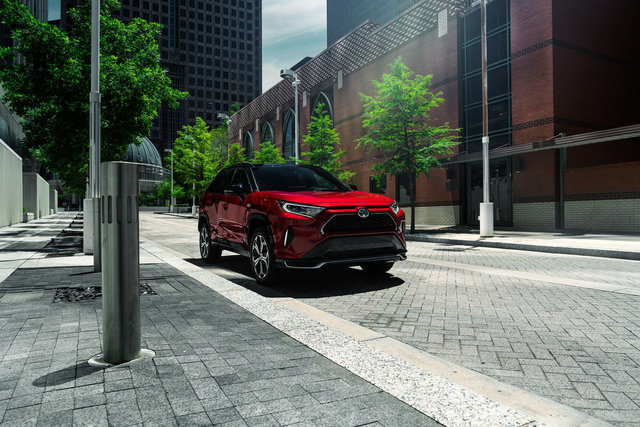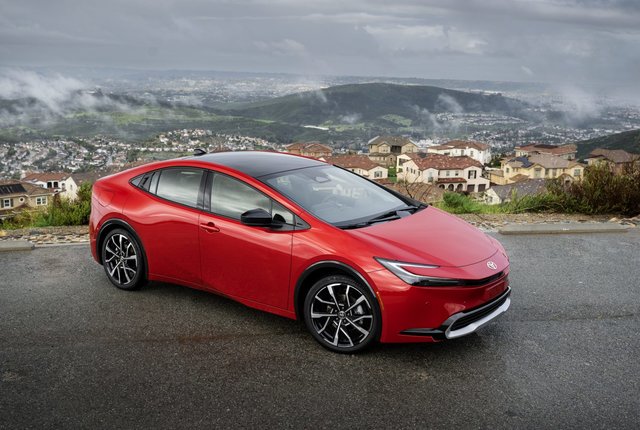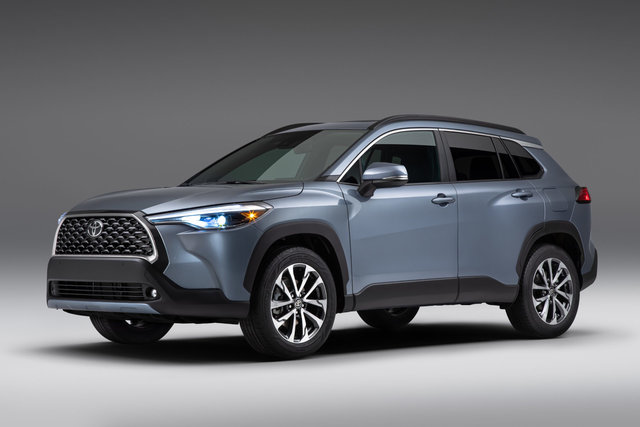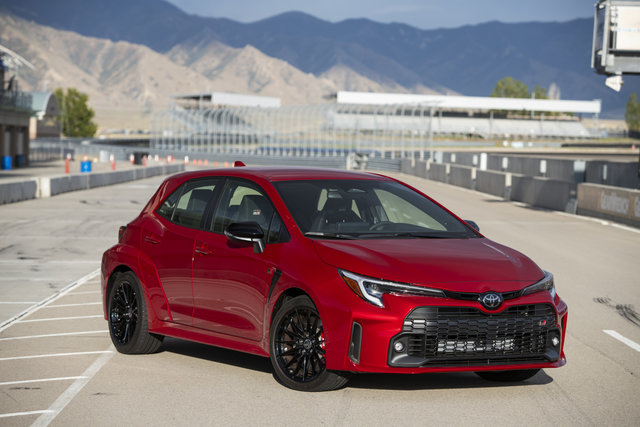The Toyota Prius lineup for 2025 offers two distinct approaches to efficient driving. The...

Toyota has one of the largest selections of hybrid vehicles on the market. Toyota also offers plug-in hybrid vehicles and this year it will be introducing its first fully electric vehicle, the Toyota bZ4X.
If you are looking for an electrified vehicle with great range and impressive efficiency, the Toyota bZ4X should be on your list. That said, regardless of whether you are looking for a hybrid vehicle a plug-in hybrid vehicle or an electric vehicle, Toyota has you covered.
Now, what if you are not sure which Toyota vehicle is right for you and which type of technology is best suited to your needs? We thought we would look at the difference between hybrid, plug-in hybrid, and electric vehicles.
Hybrid Toyota vehicles
Hybrid vehicles like the Toyota Prius or the Toyota RAV4 Hybrid feature a combination of a gas engine and a small electric motor with a small battery. This electric motor isn't powerful enough to power the Toyota vehicle on electric power alone, but it certainly can assist the gas engine in a variety of functions in order to reduce the strain on that engine and in the process improve fuel economy.
Toyota plug-in hybrid vehicles
Toyota plug-in hybrid vehicles like the Toyota Prius Prime and the Toyota RAV4 Prime have the same layout as a hybrid powertrain with a gas engine, electric motor, and battery. That said, the battery in this case is a lot larger. This gives the PHEV vehicle the ability to function on electric power alone for between 40 km and 68 km depending on the vehicle and the conditions. This is very generous range even as far as plug-in hybrid vehicles go. This allows you to do many of your daily trips without needing a single drop of fuel, but you also have the advantage of having a gas engine should you want to go further.
Toyota electric vehicles
The Toyota bZ4X is fully electric and it will offer over 400 km of range according to initial specifications. Toyota’s first fully electric vehicle will not require any fuel and will be charged at home on a level II charger or on the road on a level III charger. Fully electric vehicle offers a lot of advantages including lower cost of ownership as well as better performance. There are advantages and disadvantages to each technology. Give us a call today to learn more.
Other Articles That May Interest You
The 2025 Toyota Corolla Cross brings versatility and efficiency to the subcompact SUV segment...
Toyota has unveiled the first glimpse of an enhanced GR Corolla currently under development for...





